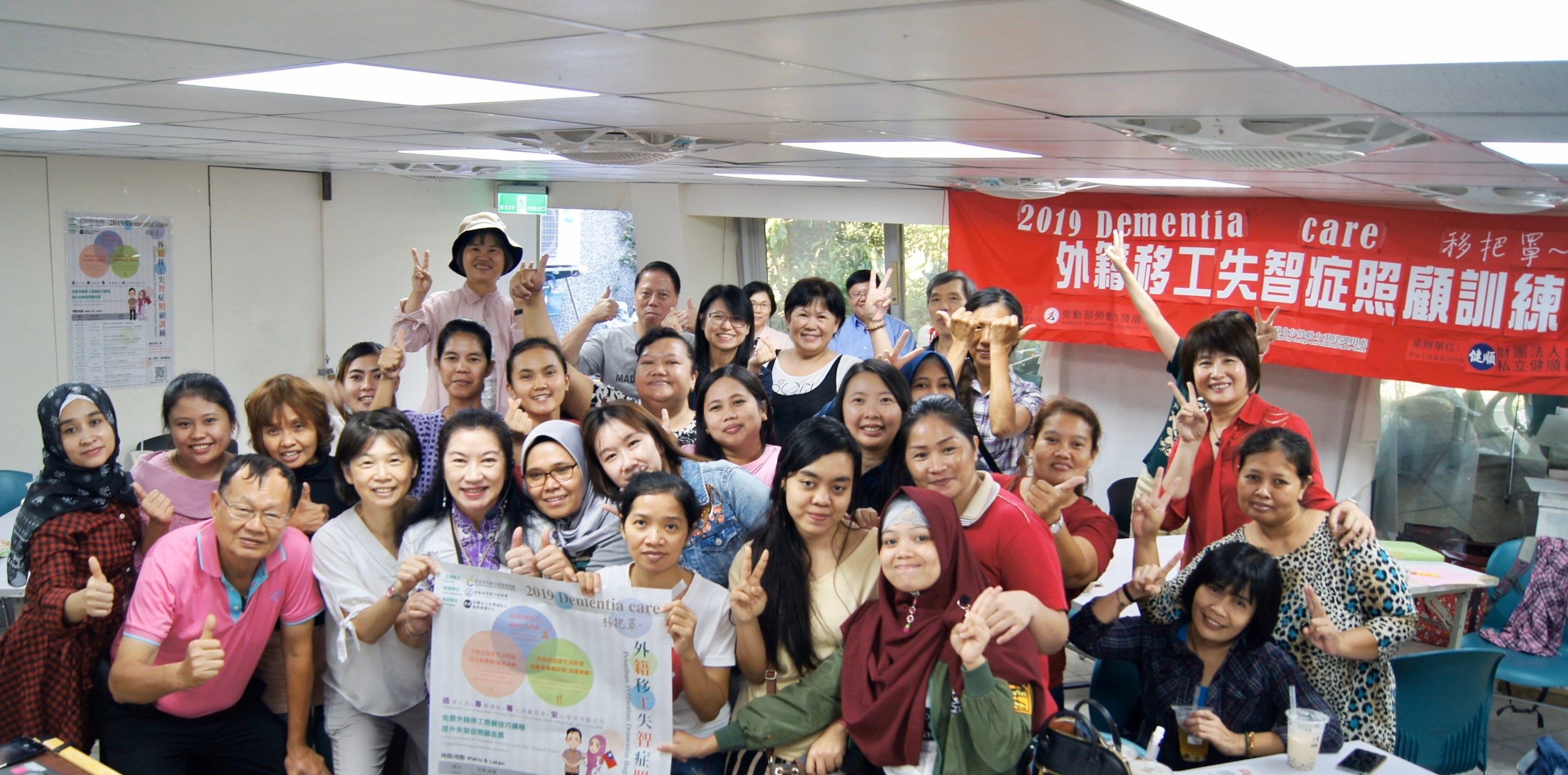Looking After the Elderly with Dementia – Taipei City Launches Migrant Training Course
 Employer Ms. Wang hired migrant worker Siti to look after her mother (who has dementia) 3 years ago. Due to her conditions, her mother does not treat Siti well, a problem that is compounded by the language barrier, therefore Ms. Wang and the migrant worker are both feeling anxious about the situation.
Employer Ms. Wang hired migrant worker Siti to look after her mother (who has dementia) 3 years ago. Due to her conditions, her mother does not treat Siti well, a problem that is compounded by the language barrier, therefore Ms. Wang and the migrant worker are both feeling anxious about the situation.
Just like Ms. Wang, many families in Taipei City have hired migrant workers to take care of their elderly family members at home who are suffering from dementia. However, as the symptoms of dementia deteriorate with age, their behavioral problems drastically increase the burden on care workers.
In light of this, the Taipei City Foreign and Disabled Labor Office has organized 5 dementia care training classes for migrant workers in 2019, incorporating 3 dimensions which include dementia patients’ behavior, everyday care, and practical drills on eating and food preparation. Furthermore, psychotherapists from Taipei Community Mental Health Center have been invited to help migrant workers to relieve their psychological stress of looking after senior citizens.
The first training course was completed on October 8, and employer Ms. Wang commented that after attending the group course to exchange and share experiences in caregiving, Siti is able to recognize the symptoms of dementia and change the way she communicates with her mother. She has adopted a more skillful, tolerant, accepting, and non-judgmental approach to interacting with senior citizens. On the other hand, Siti has received support and encouragement from other migrant workers in the class, which in turn not only allows her to achieve emotional catharsis but also appreciate the problems encountered by each migrant worker while taking care of the elderly.
In light of the stress faced by families looking after the elderly with dementia, and to let the family members and migrant workers learn caregiving techniques with peace of mind, the organizer has specially arranged activities for senior citizens and encouraged the families to bring along their elderly members with dementia to join the event. Professional care workers will help them take care of senior citizens and lead them to participate in the activities. In doing so, they will be offered an opportunity to go outdoors and socialize with others, and their families will also be able to learn with peace of mind. Coming from Indonesia, Ani thanked the organizer for looking after granny while she attended the class so that she could learn attentively. Besides learning a lot of techniques for dementia care, the most important benefit of the course is that she realized that she is not alone in the field of caregiving.
Looking after the elderly with dementia is not the job of migrant workers alone; it also requires concerted efforts from the employer and the care receiver. Migrant workers and their employers also took out their cell phones to document the lecturer’s lesson in order to learn caregiving skills diligently. A total of 5 courses will be conducted in October for migrant workers, employers and their families. For further details, please call (02)-2542-0006#109 or #115, or register online (https://reurl.cc/zyeMm0). Citizens are welcome to make use of the service.

![Taiwan.gov.tw [ open a new window]](/images/egov.png)
